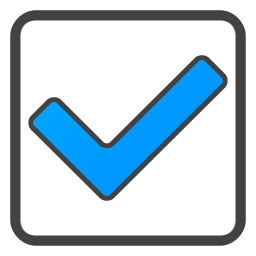311411: Chemistry Technician
Skill Level: 2
Assessing Authority: VETASSESS
Visa Options – ANZSCO 311411
| Visa Type | Eligibility | MLTSSL | STSOL | ROL |
|---|---|---|---|---|
| Subclass 189 (Skilled Independent) |  | - | - | - |
| Subclass 190 (Skilled Nominated) |  | - |  | - |
| Subclass 491 (State/Territory nominated) |  | - |  | - |
| Subclass 491 (NOT nominated by State/Territory) |  | - | - | - |
| Subclass 485 (Graduate) |  | - | - | - |
| Subclass 482 (TSS) |  | - |  | - |
| Subclass 186 (ENS) |  | - | - | - |
| Subclass 187 (RSMS) |  | - |  | - |
| Subclass 407 (Training) |  | - |  | - |
State Eligibility Summary Table – ANZSCO 311411
311411: Chemistry Technician
Description
Performs laboratory tests on organic and inorganic chemicals, analyses test data and carries out technical functions in support of Chemists or Chemical Engineers in a wide variety of areas such as fuels, agricultural products, food, pharmaceuticals, paints, metals, plastics, textiles, detergents, paper, fertilisers and cosmetics.
Skill Level
Occupations at Skill Level 2 have a level of skill commensurate with one of the following:
– NZ Register Diploma or
– AQF Associate Degree, Advanced Diploma or Diploma.
At least three years of relevant experience may substitute for the formal qualifications listed above. In some instances relevant experience and/or on-the-job training may be required in addition to the formal qualification.
Specialization
- Chemical Instrumentation Officer
- Chemical Process Analyst
- Chemistry Laboratory Technician
- Dairy Laboratory Technician
- Petroleum Laboratory Technician
- Sugar Laboratory Assistant
Specialisation titles are any commonly used titles which refer to a subset of jobs belonging to the occupation designated in the principal title. These jobs involve the performance of specialised tasks rather than the broader range of tasks usually performed in the occupation.
![]()
Tasks
- Preparing materials for experimentation such as freezing and slicing specimens and mixing chemicals
- Collecting information and samples
- Conducting field and laboratory experiments, tests and analyses
- Presenting results in graphic and written form by preparing maps, charts, sketches, diagrams and reports
- Performing routine mathematical calculations, and computations of measurements
- Controlling the quality and quantity of laboratory supplies by testing samples and monitoring usage
- Checking, calibrating and maintaining test equipment
- Participating in fabricating, installing and modifying equipment to ensure that critical standards are met
- Preparing experiments and demonstrations for science classes
![]()
Assessing Authority
“Currently there is no known caveats applicable to this occupation”. Refer to Department of Home Affairs website for updated list.
![]()

